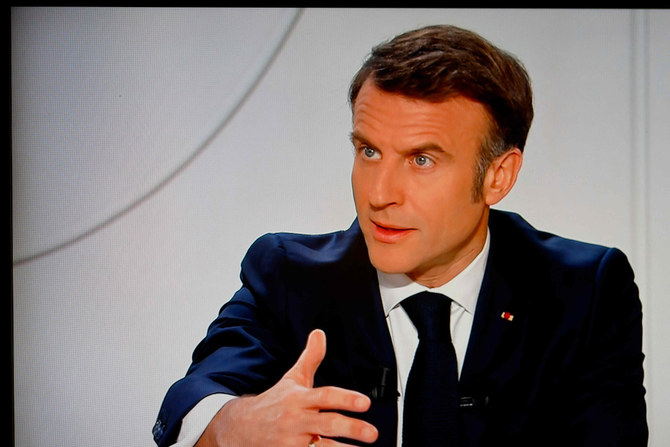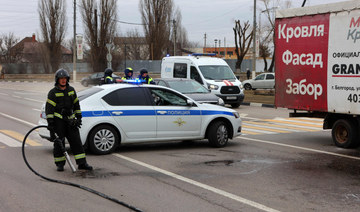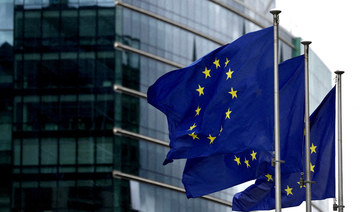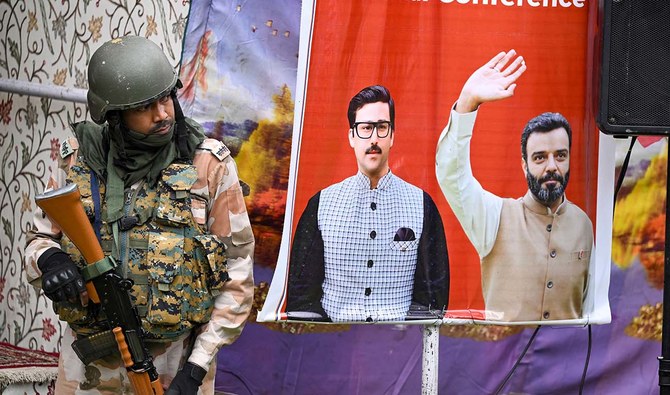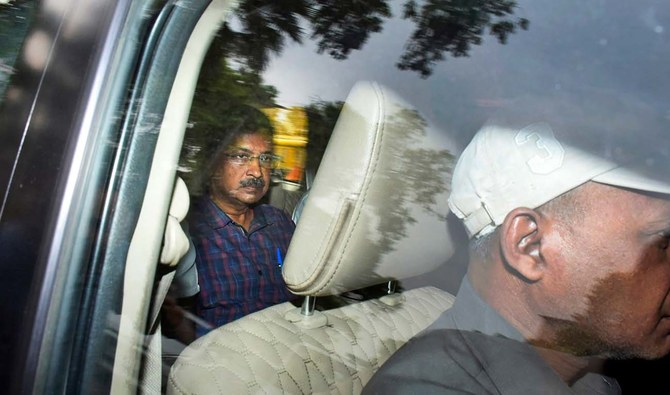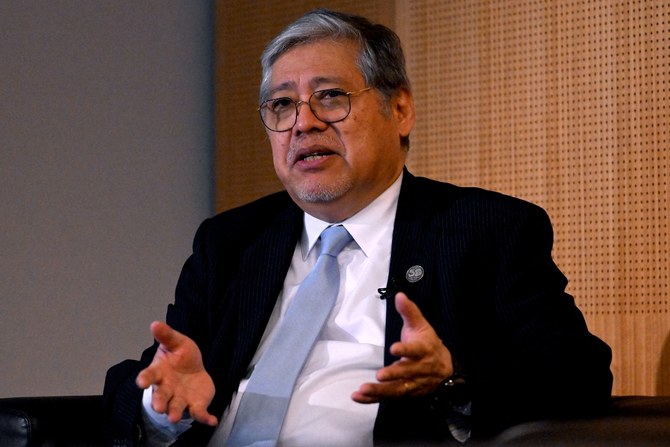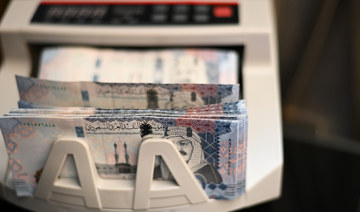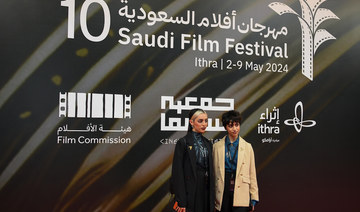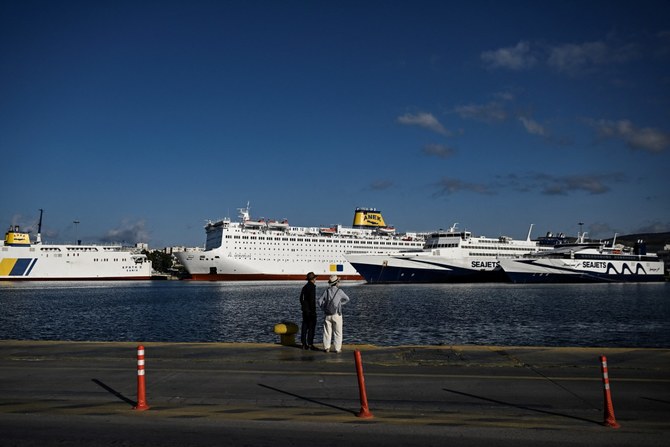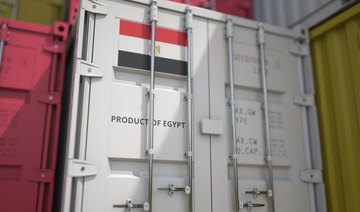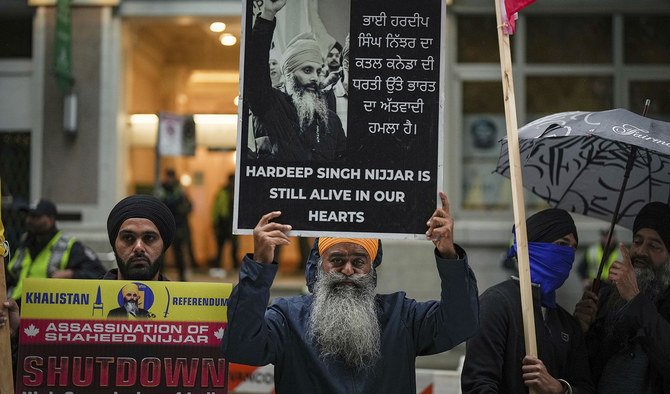PARIS: French President Emmanuel Macron on Thursday warned allies against imposing limits on support for Ukraine, saying European security was at stake in Kyiv’s battle against the Russian invasion.
With Ukraine suffering military setbacks since the failure of a counteroffensive last summer, Macron had last month shocked some allies by not ruling out sending Western troops to Ukraine.
He said in an interview with French television aimed at clarifying his policy that the sending of ground forces was not on the agenda now but Europe had to keep “all options” open in case the war spread.
Macron’s comments came as he prepares on Friday to travel to Berlin for a summit on Ukraine with allies German Chancellor Olaf Scholz and Polish Prime Minister Donald Tusk.
He rammed home his insistence that Europe should not show weakness and do everything it could to stop Russia from winning a war that threatened the security of ordinary French and European citizens.
“If Russia wins this war, Europe’s credibility will be reduced to zero,” Macron said in the interview with French broadcasters TF1 and France 2 television.
Calling the conflict in Ukraine “existential for our Europe and for France,” Macron said anybody advocating “limits” on aid to Ukraine “chooses defeat.”
He said there had been “too many limits in our vocabulary” since the Russian invasion in February 2022.
“Two years ago we said we would never send tanks. We did. Two years ago, we said we would never send medium-range missiles. We did,” he said.
In a post-interview statement, Macron said Russia would not halt its territorial ambitions if it wins its war in Ukraine, posing a threat to the neighboring countries of Moldova, Romania and Poland.
“Russia has become a power that wants to expand and it’s clear that it will not stop there,” Macron posted on X. “If we abandon Ukraine, if we let Ukraine lose this war, Russia will surely threaten Moldova, Romania, Poland.”
Macron acknowledged that negotiations would need to take place once the war ended but emphasized that peace did not mean the “capitulation” of Ukraine.
“Today we must have — to quote (Winston) Churchill — ‘the sinews of peace’. To want peace is not to want defeat or to let Ukraine fall,” he said, quoting the famous phrase used by the British premier in a 1946 speech in the United States shortly after World War II ended.
For France “all options” are on the table in its support for Ukraine, Macron said.
“Should the situation get worse, we will be ready” to prevent a Russian victory, but he also said his country would “never go on the offensive” in the war.
“We will never take the initiative,” he said.
He warned that “if Russia wins, the life of the French will change. We will have no more security in Europe.”
Macron, who said he has probably held more hours of talks with Russian President Vladimir Putin than any other major leader in recent years, said the Kremlin chief could not be trusted.
“Who would think for a single second that President Putin, who did not respect any of his limits and engagements, would stop there?“
He described Russia as an “adversary” of France but was careful to avoid using the word “enemy.”
Macron raised alarms throughout Europe last month when he said committing ground troops to Ukraine was not ruled out.
His remark found little echo among allies, but also among the French population, with 68 percent disapproving of such an announcement, according to an opinion poll for the daily Le Figaro.
A majority in both houses of parliament backed Macron’s Ukraine strategy this week, with the far-right RN party abstaining and the radical left voting against, with its deputies accusing Macron of “war-mongering.”
Asked Thursday about sending ground troops to Ukraine, Macron replied: “We are not in that situation today” while adding: “There is a reason not to exclude options.”
“If Russia continues its escalation, if the situation deteriorates we must be ready to take the decisions that are needed to make sure Russia never wins.”



